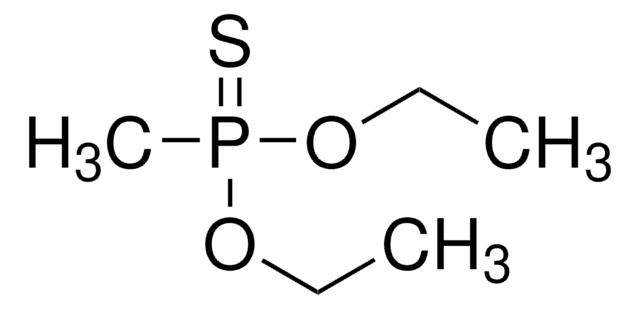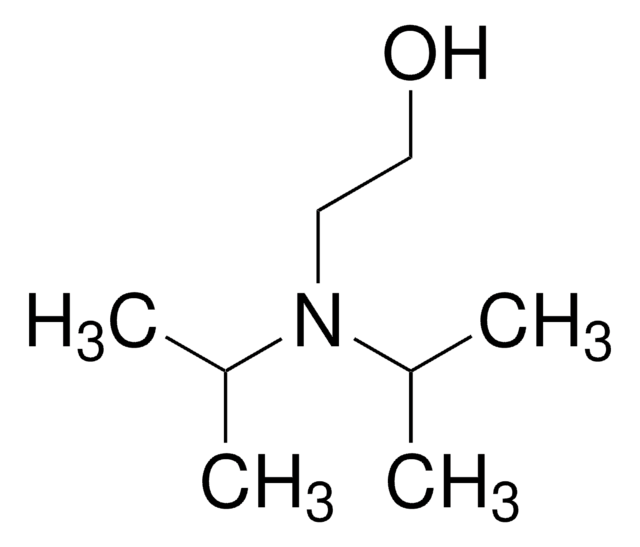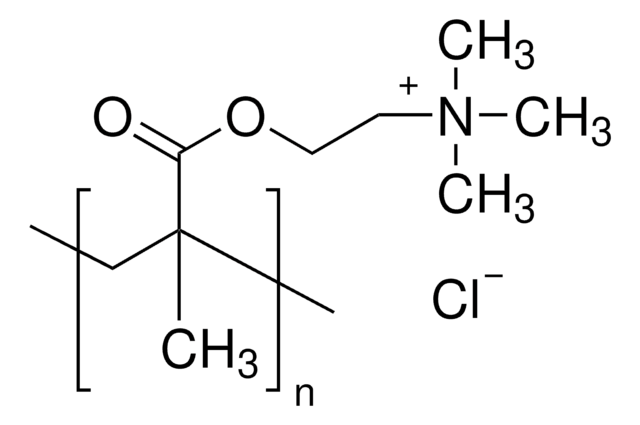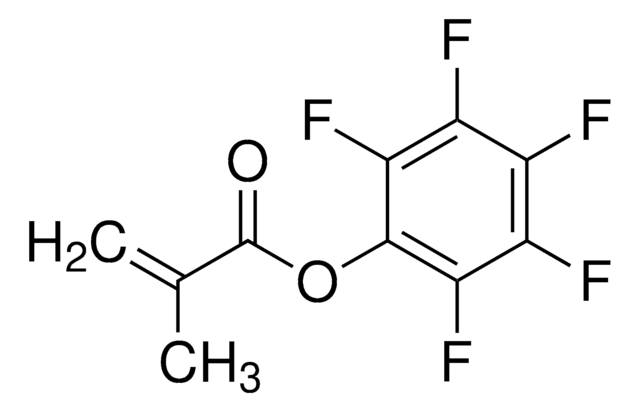730971
2-(Diisopropylamino)ethyl methacrylate
97%, contains ~100 ppm monomethyl ether hydroquinone as inhibitor
Synonym(s):
DPA, DPAEMA
Sign Into View Organizational & Contract Pricing
All Photos(2)
About This Item
Empirical Formula (Hill Notation):
C12H23NO2
CAS Number:
Molecular Weight:
213.32
EC Number:
MDL number:
UNSPSC Code:
12162002
PubChem Substance ID:
NACRES:
NA.23
Recommended Products
Quality Level
Assay
97%
form
liquid
contains
~100 ppm monomethyl ether hydroquinone as inhibitor
refractive index
n20/D 1.145
density
0.900 g/mL at 25 °C
storage temp.
2-8°C
SMILES string
CC(C)N(CCOC(=O)C(C)=C)C(C)C
InChI
1S/C12H23NO2/c1-9(2)12(14)15-8-7-13(10(3)4)11(5)6/h10-11H,1,7-8H2,2-6H3
InChI key
SVYHMICYJHWXIN-UHFFFAOYSA-N
Related Categories
General description
2-(Diisopropylamino)ethyl methacrylate (DPA) is a methacrylate class of monomer used to prepare various DPA-derived polymers, which includes poly(2-(diisopropylamino)ethyl methacrylate) (PDPA). PDPA is a water-soluble polymer, which exhibits sensitivity to changes in pH and temperature. At pH levels below its pKa value of approximately 6.5, PDPA undergoes a transition from hydrophobic to hydrophilic behavior. This transition is attributed to the protonation of its amino groups. These unique properties of PDPA polymers consequently make them very useful in various applications such as drug delivery, gene delivery, sensors, surfaces, membranes, and chromatography.
Application
2-(Diisopropylamino)ethyl methacrylate can be used:
- As a monomer in the synthesis of multi-responsive hyperbranched copolymers by combining poly(oligo(ethylene glycol)methyl methacrylate) (P(OEGMA)) and 2-(diisopropylamino)ethyl methacrylate (PDIPAEMA) using RAFT polymerization. These polymers find application in drug delivery, gene delivery and tissue engineering.
- A monomers in the synthesis of block copolymer poly(ethyleneglycol)-b-poly(2-(diisopropylamino)ethyl methacrylate) (PEG-b-PDPAEMA). These pH-responsive micelles can be used for enhanced intracellular drug delivery. The DPA monomer contributes to the pH-responsive nature of the copolymers.
Signal Word
Danger
Hazard Statements
Precautionary Statements
Hazard Classifications
Eye Dam. 1 - Skin Irrit. 2 - Skin Sens. 1 - STOT SE 3
Target Organs
Respiratory system
Storage Class Code
10 - Combustible liquids
WGK
WGK 3
Flash Point(F)
210.0 °F
Flash Point(C)
98.9 °C
Choose from one of the most recent versions:
Already Own This Product?
Find documentation for the products that you have recently purchased in the Document Library.
Customers Also Viewed
Emma von Wowern et al.
The journal of maternal-fetal & neonatal medicine : the official journal of the European Association of Perinatal Medicine, the Federation of Asia and Oceania Perinatal Societies, the International Society of Perinatal Obstetricians, 30(19), 2309-2314 (2016-10-14)
Uterine artery (UtA) Doppler velocimetry changes and increased arterial stiffness are associated with preeclampsia. We aimed to investigate the relation between UtA velocimetry changes and arterial stiffness in pregnant women. Doppler velocimetry and photoplethysmographic digital pulse wave analysis (DPA) were
Robert K McNamara et al.
Prostaglandins, leukotrienes, and essential fatty acids, 136, 23-34 (2017-05-23)
There is a substantial body of evidence from animal studies implicating polyunsaturated fatty acids (PUFA) in neuroinflammatory, neurotrophic, and neuroprotective processes in brain. However, direct evidence for a role of PUFA in human brain structure and function has been lacking.
Kaishi Narushima et al.
Nanoscale, 9(30), 10653-10661 (2017-06-14)
Up-conversion materials composed of donor and acceptor molecules which convert low energy photons into higher energy ones by triplet-triplet annihilation can improve the sensitivity of photocatalysts or the efficiency of solar cells. The use of crystalline materials can lead to
Daniel Martínez-Laguna et al.
PloS one, 13(9), e0203533-e0203533 (2018-09-08)
An increased fracture risk has been described as a complication of Type 2 diabetes mellitus (T2DM). Clinical prediction models for general population have a limited predictive accuracy for fractures in T2DM patients. The aim was to develop and validate a
Marina E Aspholm et al.
Food microbiology, 84, 103259-103259 (2019-08-20)
Bacillus licheniformis is frequently associated with food spoilage due to its ability to form highly resistant endospores. The present study reveals that B. licheniformis spore peptidoglycan shares a similar structure to spores of other species of Bacillus. Two enzymatic activities
Global Trade Item Number
| SKU | GTIN |
|---|---|
| 730971-100G | 4061832929224 |
| 730971-25G | 4061832929231 |
Our team of scientists has experience in all areas of research including Life Science, Material Science, Chemical Synthesis, Chromatography, Analytical and many others.
Contact Technical Service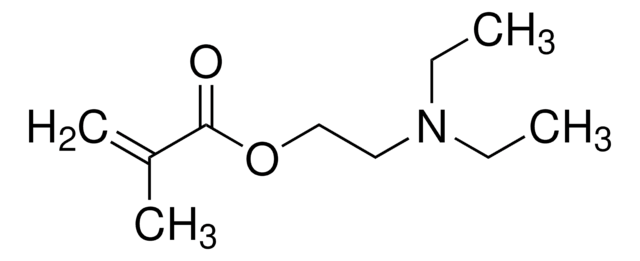
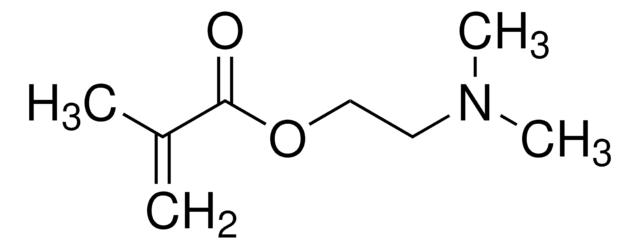

![N-[3-(Dimethylamino)propyl]methacrylamide 99%, contains MEHQ as inhibitor](/deepweb/assets/sigmaaldrich/product/structures/295/145/6b4aae15-7cb5-4b7b-9c06-8e6d24e50951/640/6b4aae15-7cb5-4b7b-9c06-8e6d24e50951.png)
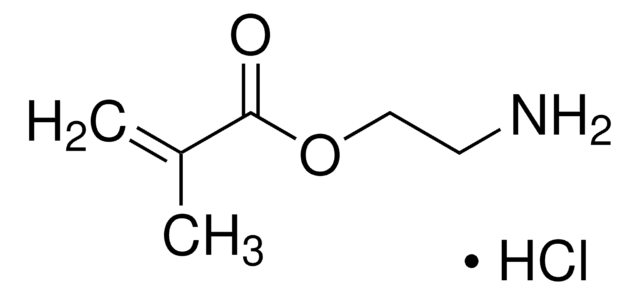

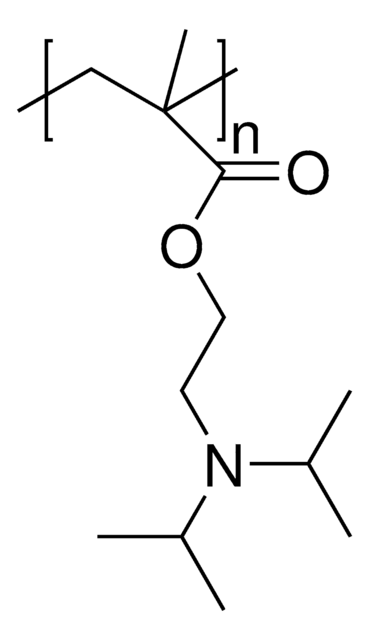
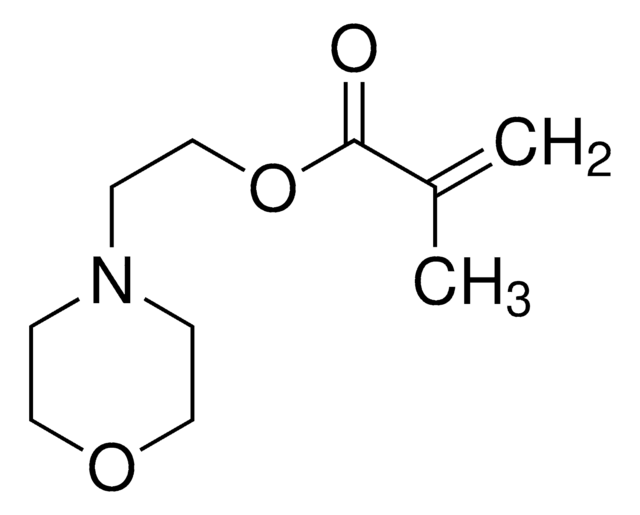
![[2-(Methacryloyloxy)ethyl]trimethylammonium chloride solution 75 wt. % in H2O](/deepweb/assets/sigmaaldrich/product/structures/316/612/66b0f4cf-d060-427d-b4f5-e8fab3e5cffe/640/66b0f4cf-d060-427d-b4f5-e8fab3e5cffe.png)




